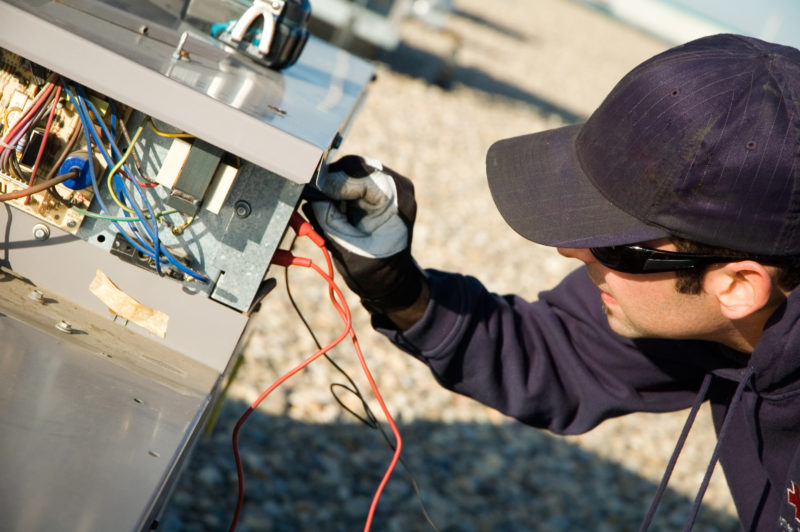Homeowners in the mid-Atlantic region experience a wide range of temperatures and weather conditions throughout the year and use their HVAC systems extensively to create comfortable environments in their homes. Such high energy usage results in quite hefty energy bills. That’s why the efficiency of an HVAC system is of paramount importance when it comes to providing you with comfortable living space without causing a financial strain.
Although HVAC systems available today are many times more efficient than the ones from even a decade ago, it still helps to know what specific features to look for in order to identify the most efficient HVAC unit. Below, we will review the best design features and installation process of energy-efficient HVAC systems.
A SEER Rating
A SEER (seasonal energy efficiency ratio) rating number indicates how efficient a system is. The minimum requirement for the Energy Star qualification is 14.5 SEER. These ratings can go up into the 20s, but a system with the SEER rating of 16 is already considered highly efficient.
An Air Handler With Variable Speeds
A variable-speed air handler is an important feature of high-efficiency systems. It allows your HVAC unit to go back and forth between different speeds depending on your home’s air requirements, thus using only the amount of energy needed.
A Dual-Stage Compressor
Dual-stage compressors in air conditioners allow for two different settings and provide a better humidity control. The system operates at low setting for longer periods during mild summer days and runs on a high setting during hot times.
A Fan Delay Feature
An automatic fan delay switch allows an HVAC system to make use of all the cool air generated. This is accomplished by having the air handler run a little longer after the compressor’s shut-off at the end of cooling cycles. Because of a running fan, all cool air is cleared from the ducts and pushed into your living spaces.
Efficient Coils and Motors
High-efficiency HVAC systems have highly efficient coils and motors providing a greater output for energy input.
A Fan-Only Setting
A fan-only feature of high-efficiency air conditioning systems puts all generated cool air to use by circulating it around the house instead of creating more cool air that is not needed on chilly mornings or nights, for example.
A Thermal Expansion Valve
A thermal expansion valve regulates the flow of refrigerant through the air conditioning unit according to your home’s cooling needs at any given time. When more cooling is required, the valve increases the flow of refrigerant. When less cooling is required, the valve restricts the flow of refrigerant.
Lower Noise Levels
High-efficiency HVAC systems are considerably quieter and typically operate at noise levels of as low as 65 dB. This feature helps protect your hearing and nervous system, especially when you must keep your AC running all day long.
A Programmable Thermostat
Programmable thermostats on HVAC systems allow you to set exact temperatures, thus preventing cooling or heating your house too much and having you constantly turn it up or down to reach a desired level of comfort.
Filter Alerts
Having your HVAC system to alert you when it’s time to change a filter can help the system run smoothly and efficiently for longer and prevent its untimely wear and tear.
Installation Process
Installation of an HVAC system takes time because many factors must be considered to allow for the most energy efficiency and comfort.
Our HVAC experts will determine your house’s air conditioning needs and properly size your new AC unit to your building. The interior space of your house will be measured precisely. Your windows and doors will be evaluated for energy efficiency and orientation to the sun. The size of your family will be factored in the calculations as well. Your ductwork will be checked for proper insulation. Evaluating your home’s conditioning needs, our technicians will also consider local weather conditions.
When the right size of the system is determined, the HVAC experts will advise you on the right brands for your household, going over pros and cons of each system. Once you make the selection, we’ll be ready to initiate the installation process.
If using your HVAC system causes your energy bills to go up significantly, contact our Griffith Energy Services HVAC specialists at 888-474-3391. They will assist you with selection and installation of the perfect unit for your Washington, D.C., home.
Image provided by Shutterstock




